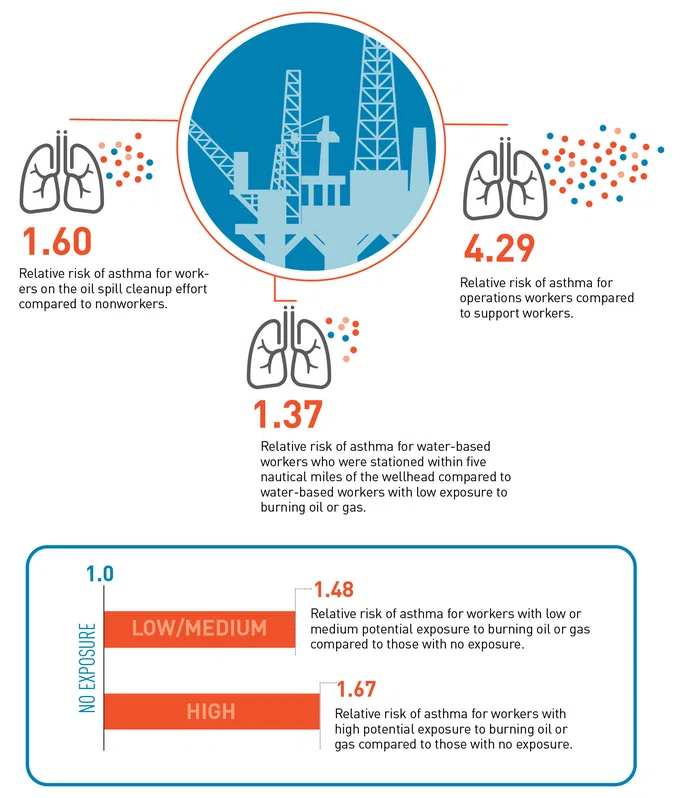

DEPARTMENTS
BY THE NUMBERS
Risk of Asthma for Deepwater Horizon Cleanup Workers
A study published in the September issue of the journal Environment International characterizes the relative risks of developing asthma for workers who participated in the 2010 Deepwater Horizon oil spill response and cleanup. The Deepwater Horizon disaster released approximately 4.9 million barrels of crude oil into the Gulf of Mexico. Cleanup efforts included the burning of oil and natural gas, which contributed to workers’ exposures to volatile and non-volatile petroleum hydrocarbons. Other studies have found that oil spill cleanup workers are at higher risk of adverse respiratory health effects, but few studies have assessed the link between this work and asthma. Information from the Environment International study appears below and in an article in the NewsWatch section of this issue.
From “Associations Between Airborne Crude Oil Chemicals and Symptom-Based Asthma”:
“Since [study] participants reported working multiple [cleanup] jobs, participants were classified hierarchically by the type of work performed such that they were assigned to one of six job classes that had the highest approximate exposure to [total hydrocarbons, THC] based on industrial hygienist review of self-reported job histories and external information on THC exposures during the clean-up effort. The six job categories (ordered from highest to lowest exposed) were: response, operations, cleanup on water, decontamination, cleanup on land, and support work.”
Tap on the graphic to open a larger version in your browser.

SOURCE
Environment International: “Associations Between Airborne Crude Oil Chemicals and Symptom-Based Asthma” (September 2022).